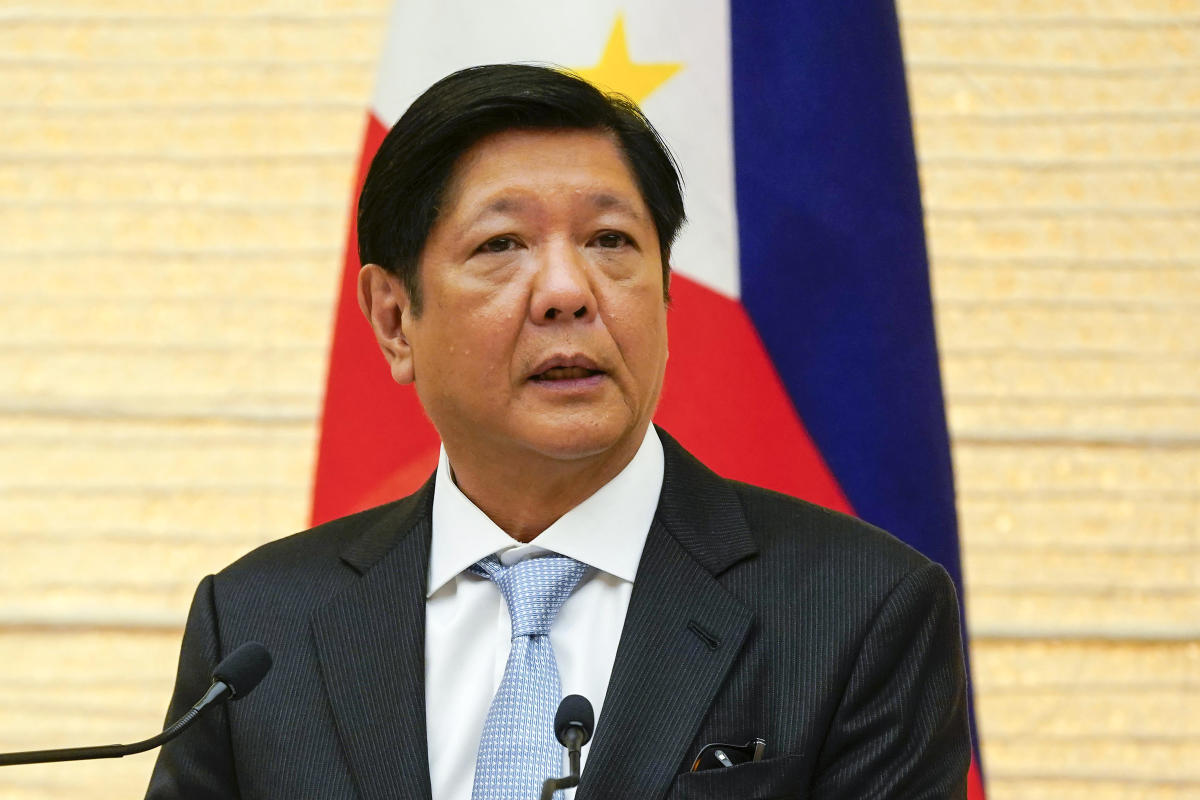MANILA, Philippines (AP) — The Philippine president said the main mission of his country’s military has changed to ensure the protection of its territory as disputes with China and rivalry between the US and China intensify.
President Ferdinand Marcos Jr. stressed the urgency to shift the army’s focus to external defense in a speech to troops on Monday afternoon. He was speaking two weeks after summoning the Chinese ambassador to protest the Chinese Coast Guard’s use of a military-grade laser that briefly blinded part of the crew of a Philippine patrol vessel in the South China Sea.
The Philippines has condemned the Feb. 6 incident in one of more than 200 diplomatic protests it has filed since last year against Beijing’s increasingly aggressive actions in the disputed waterway.
China has accused the Philippines of trespassing on its territory, saying the Coast Guard used a harmless laser to track the Philippine ship. China claims almost all of the South China Sea.
“I’m saying your mission with the AFP has changed,” Marcos told troops, referring to the Armed Forces of the Philippines. “For many, many years we have been able to keep that peace and maintain that understanding with all of our neighbors. Now things are starting to change and we need to adapt accordingly.”
He said the country’s borders were being questioned, “and a lot of things are happening, so the Air Force has a very big mission to fully secure the Philippines.” He also cited “the intensification of competition between the superpowers”.
Marcos did not provide specifics or mention China in his speech in the central province of Cebu, but underlined that Philippine foreign policy remains committed to peace.
Despite being a relatively small country, “we still have to fight for the rights of every Filipino because the Philippines is a sovereign nation and the Philippines has a functioning government,” he said.
After decades of battling Islamist and communist insurgencies, the military is beginning to focus on defending the country’s maritime borders. It has made attempts to modernize in a program that has faced delays and financial constraints.
Much of the weaponry and equipment is intended to enhance air and sea patrols to monitor the archipelago’s vast coastline and build minimal deterrence.
Under a 2014 defense pact with the United States, Marcos recently approved a broader U.S. military presence in the Philippines by allowing rotating groups of U.S. troops to reside in four more Philippine military camps. That’s a sharp reversal from his predecessor Rodrigo Duterte, who feared the US military footprint could offend Beijing.
China, the Philippines, Vietnam, Malaysia, Taiwan and Brunei are embroiled in an increasingly tense territorial stalemate in the South China Sea, where US naval vessels and fighter jets have conducted patrols to promote freedom of movement, challenge Beijing’s expansive claims and reassure allies such as the Philippines.
The disputes have intensified after China turned seven disputed reefs into missile-protected island bases to bolster its claims. The disputed waters are considered a possible Asian focal point and a delicate front in the region’s US-China rivalry.

